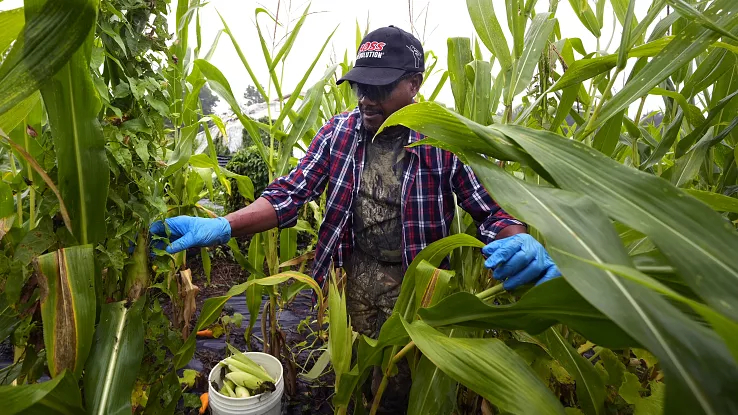Africa
Refugees in the U.S. Embrace Farming as a Path to New Beginnings

Many refugees in the U.S. are turning to farming to rebuild their lives, create sustainable livelihoods, and connect with their new communities. Discover their stories of hope and resilience.
New opportunities are arising for refugees hailing from African countries such as Burundi, Rwanda, Somalia and the Democratic Republic of Congo in the form of farming ventures within the United States. After fleeing war and persecution, these individuals have turned to cultivating crops- a means both of securing financial stability while also regaining their connection with agricultural practices. Many offer vegetables for sale on local markets or other platforms.
Most people prioritize the cultivation of crops that grow quickly and require minimal upkeep, including carrots, potatoes, spinach, kale, collard greens and squash.
Asli Yussuf, a Somali refugee now working as a farmer, declared that she is currently gathering carrots, potatoes, spinach, kale, collard greens broccoli and acorn squash.
The refugees have created their own small enterprises, vending their goods at community markets and among ethnic groups. Not only has farming granted them economic security but also a sense of ease and familiarity in an unfamiliar territory.
The wider significance of their work was highlighted by Tom McGee, the program director for the New American Sustainable Agriculture Project.
McGee clarified that our organization collaborates with self-employed farmers, empowering them to showcase their crops in the United States and find meaning while fitting into society by contributing towards realizing the American dream.
READ ALSO: Armenia claims that 100,000 refugees have left Nagorno-Karabakh
The farms have become crucial for numerous refugees, many of whom had previously worked in agriculture in their home countries. Among these is the New Hampshire nonprofit Organization for Refugee and Immigrant Success’s farming operation. Nevertheless, adapting to U.S.-based farming poses unique obstacles, particularly when it comes to marketing.
According to a farmer, while they can produce sufficient output for selling and earning a reasonable income; however, it is challenging to promote their products due to the intense rivalry among others in the market.
Although facing obstacles, refugees are thankful for the chance to labor and reconstruct their livelihoods in America.
“Here is great. I have a job of my own and feel content,” stated Khadija Aliow, also a Somali refugee who works as a farmer.
Farming holds greater significance for these refugees than mere financial survival; it serves as a pathway to integration, empowerment and a new beginning in their adopted land.
